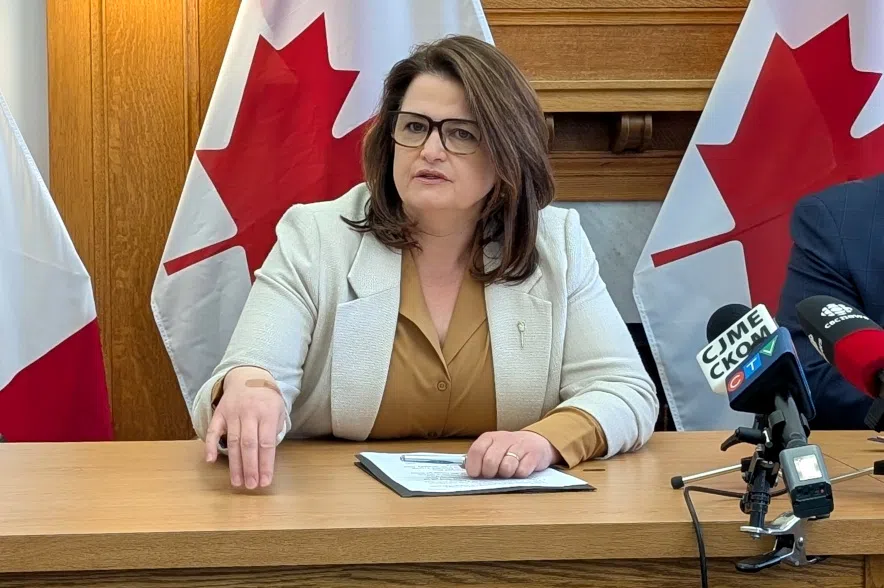On Wednesday, Sask. NDP Leader Carla Beck brought forward a private member’s bill to make it tougher to trigger a referendum on provincial separation.
The bill is called The Keep Saskatchewan in Canada Act and would amend the province’s Referendum and Plebiscite Act to take away the power for the premier and cabinet to call a provincial vote themselves on Saskatchewan separating from Canada, and would raise the threshold for a citizen petition to trigger a plebiscite to 30 per cent of the electorate from the current 15 per cent, but on a question of separation only.
The 15 per cent means, as of the last provincial election, about 124,483 people would have to sign a petition to trigger a vote – the bill would have doubled that for a separation vote only.
In Saskatchewan, the result of a referendum is binding if at least 60 per cent of the votes are in support and if at least half of those eligible to vote do so.
Beck said citizen-led referendums are part of democracy, but a vote like this would be damaging to the province’s economy.
She explained that the uncertainty around a referendum and possible separation would drive jobs and investment out of Saskatchewan – she pointed to Quebec, saying the separation referendum pushed capital and jobs out of that province, and its economy still hasn’t fully recovered.
Beck said the bill would send a strong message – that something this consequential requires a higher bar.
However, Beck also said she wasn’t suggesting that if 124,000 people wanted a vote, that they be ignored.
The NDP leader said she understands people are frustrated and have lost trust in the federal government, but the best thing to do right now is to reset the relationship with the federal government and get back to building the country.
The last time Saskatchewan held a plebiscite was in 1991, held at the same time as the provincial election that year.
The questions included should the Government of Saskatchewan be required to introduce balanced budget legislation, should the people of Saskatchewan approve, by referendum or plebiscite, any proposed changes to the Canadian Constitution – both of which had a majority yes vote – and should the procedures for abortions legally performed in Saskatchewan hospitals be paid for by the Government of Saskatchewan, which had a majority no vote.











